Please read below about this year’s Nida Doctoral School (NDS) intensive course for DA and PhD students.
NDS is a wonderful opportunity for doctoral candidates to focus on their doctoral thesis development. There are 4 places for Aalto ARTS students and costs will be covered on ARTS School level.
You will find more information and the link to the Application Form by scrolling down.
Tweezers and Squeezers: Methodological Approaches and Research Methods in Art, Design and Architecture
Third Nida Doctoral School intensive course for DA and PhD students in art, design, architecture, humanities and the social sciences
21-26 August 2017
Nida Art Colony of Vilnius Academy of Arts, Lithuania
Application deadline: 31 March 2017
VAA Nida Art Colony, Neringa, Lithuania, 2016. Dronography by Robertas Narkus
Theme
The third Nida Doctoral School (NDS) will bring together a multidisciplinary group of practice and theory-based doctoral candidates researching different topics in the context of the visual and performing arts, design and architecture, sharing the common goal of completing a doctoral degree, to discuss and develop the methodological framework of their research projects. NDS will provide a platform for dialogue and the exchange of ideas, as well as a space for sharing feedback and peer support. The aim of NDS 2017 is to focus on research methods and on the development of methodological skills and approaches, and to provide critical feedback from distinguished international tutors.
Finding suitable methods and framing the methodological approach is one of the biggest sources of anxiety and uncertainty for doctoral researchers, especially practice-based, when developing and implementing a research plan. Could I treat my art or design practice as the main method? How should I write about my methodology? Or, as Henk Slager calls it, ‘methodicy’*? How should I safeguard myself and my audience from methodological excess? Does my methodological approach help or limit me in doing my research? When should I think about it: when starting or when concluding my research and thesis? What is the relationship between theory and practice in my research, and which philosophical/theoretical school should I refer to in order to base my argument?
Format
The third NDS will take place on 21-26 August 2017. Each day will include one-hour-long presentations by invited speakers and tutors, followed by one-hour-long discussions. The rest of the day will be dedicated to doctoral student presentations, followed by discussions and feedback (one hour per student). Invited speakers and tutors will act as respondents to the student research development work. The programme will also include slots for individual consultations.
The students are expected to participate in presentations and discussions, and to prepare for the course by studying a reading list compiled by the invited speakers and tutors and provided in early June. In addition to the discussions around the overall topic of the School, students are asked to prepare a 30-minute presentation of their own research and practice, with a special focus on their methodological approach. In these sessions, students will receive feedback from their peers on other doctoral programmes, as well as from the invited speakers and tutors of the School.
Invited Speakers and Tutors
In 2017, NDS has the pleasure to welcome three INVITED SPEAKERS:
– Dr Joanne Morra, Reader in Art History and Theory, curator of the Doctoral Platform at Central Saintt Martins, University of the Arts London, founding principal editor of Journal of Visual Culture;
– Dr Marquard Smith, academic, curator, commissioner, programmer, and Founder and Editor-in-Chief of Journal of Visual Culture, currently Programme Leader for the MA Museums & Galleries in Education at UCL Institute of Education;
– Prof Juha Suoranta, social scientist and public intellectual, professor at the University of Tampere, author of ‘Artistic Research Methodology. Narrative, Power and the Public’ (with Mika Hannula and Tere Vadén, 2014), ‘Rebellious Research’ (in Finnish with Sanna, Rynnänen, 2014).
Dr Joanne Morra is a Reader in Art History and Theory at Central Saint Martins (CSM), University of the Arts London. She runs The Doctoral Platform at CSM, and is the Founding Principal Editor of Journal of Visual Culture. She has published widely on modern and contemporary art, in, for instance, New Formations, Art History, Journal of Modern Art, What is Research in the Visual Arts (eds. Holly & Smith). Joanne has edited many collections, including ‘The Limits of Death’ (MUP 2000), ‘The Prosthetic Impulse: From a Posthuman Present to a Biocultural Future’ (MIT 2006), ‘Visual Culture: Critical Concepts in Media and Cultural Studies’ (4 volumes, Routledge 2006), ‘Acts of Translation with Bal’ (Sage 2007). Recent activities include the exhibition ‘Saying It’ (Freud Museum London 2012), ‘Intimacy Unguarded: Autobiography, Biography, Memoir’ (with Talbot, 2013), ‘50 Years of Art and Objecthood’ (with Green, Sage 2017), and ‘Inside the Freud Museums: History, Memory and Site-Responsive Art’ (I.B. Tauris 2017).
Dr Marquard Smith is Programme Leader for the MA Museums & Galleries in Education at UCL Institute of Education. He is an academic, curator, commissioner, programmer, and Founder and Editor-in-Chief of Journal of Visual Culture. Recent exhibitions curated include, ‘The Global Archive’ (London, 2012), ‘Jordan McKenzie: An Englishman Abroad’ (Istanbul, 2014), and most recently ‘How to Construct a Time Machine’ (Milton Keynes, 2015). Marq writes on artistic research, practice-based research, archives, arts education, and most recently on experimentally in ‘MaHKUscript: Journal of Fine Art Research’. He is author, editor, and co-editor of over 20 books and themed issues of journals including ‘What is Research in the Visual Arts?’ (Yale UP, 2008), ‘Visual Culture Studies’ (Sage, 2008), ‘The Erotic Doll: A Modern Fetish’ (Yale UP, 2013), ‘The Prosthetic Impulse’ (The MIT Press, 2005). Marq’s previous academic roles include: Head of the School of Art and Design History, Kingston University, London; Research Leader and Head of Doctoral Studies in the School of Humanities at Royal College of Art; and Founding Director of the Institute for Modern and Contemporary Culture at University of Westminster, London.
Prof Juha Suoranta is a Finnish social scientist, and public intellectual. He is currently Professor at the University of Tampere. In total, he has published 38 books, such as ‘The Integrated Media Machine I: A Theoretical Framework’ (co-edited with Mauri Ylä-Kotola, Sam Inkinen and Jari Rinne), 2000; ‘Architecture: Theory, Research, and Practice’ (with Seppo Aura and Juhani Katainen), 2001; ‘Artistic Research. Theories, Methods, and Practices’ (with Mika Hannula and Tere Vadén), 2005; ‘Artistic Research Methodology’ (with Mika Hannula and Tere Vadén), 2014. Suoranta has published extensively in the fields of education, political sociology of education, radical adult education, critical media education, and critical pedagogy. In his writing, Suoranta is interested in bringing together ideas and material from various disciplines, including media and cultural studies, sociology, educational studies, literature studies and literature.
Three TUTORS will guide the students through the course:
– Dr Sofia Pantouvaki, scenographer and Professor of Costume Design at Aalto University;
– Dr Mika Elo, Professor of Artistic Research, Head of Doctoral Programme, Vice-Dean for Research at the University of the Arts Helsinki, Academy of Fine Arts;
– Konstantinas Bogdanas, artist and Associate Professor of Visual Art at Vilnius Academy of Arts.
Dr Sofia Pantouvaki is a scenographer and Professor of Costume Design at Aalto University. Her background includes over 80 designs for theatre, film, opera and dance productions in Europe, as well as numerous curatorial and exhibition design projects. She is co-author of ‘History of Dress – The Western World and Greece’ (2010), editor, ‘Yannis Metsis – Athens Experimental Ballet’ (2011), and co-editor of ‘Presence and Absence: The Performing Body’ (2014). She is editor of the academic journal ‘Studies in Costume and Performance’, project leader for ‘Visual Aspects of Performance Practice’ and the Vice-Head of Research for OISTAT Costume Design Group. Costume Curator for World Stage Design (2013), and Associate Curator for ‘Costume in Action’ (WSD2013). At Aalto University, she founded ‘Costume in Focus’ and is Principal Investigator of the research project ‘Costume Methodologies’ funded by the Academy of Finland (2014-2018). Sofia has taught and lectured internationally. Her recent research focuses on performance costume, fashion and costume curating, the potential of new materials and embodied technologies in costume practice, and clothing in the concentration camps of the Second World War.
Dr Mika Elo is Professor of Artistic Research at the University of the Arts Helsinki. His research interests include theory of photographic media, philosophical media theory, and artistic research. He participates in discussions in these areas in his capacity as curator, visual artist and researcher. In 2009-2011, he worked on the research project ‘Figures of Touch’ (figuresoftouch.com). In 2012-2013, he co-curated the Finnish exhibition ‘Falling Trees’ at the Biennale Arte 2013 in Venice. He is also a member of the editorial board of the ‘Journal for Artistic Research’.
Konstantinas Bogdanas studied painting at the State Institute of Art (now Vilnius Academy of Arts). He currently lectures on visual art at the Academy. Since 2012, he has supervised doctoral students’ practice-based research. Bogdanas has been exhibiting since 1986. In his artistic career, he focuses on concept-based artwork, andcombines different media (objects, installations, performances, photographs), the most important of which, however, is the medium of language. Formally speaking, Bogdanas is mainly concerned with questions of identity. He questions abstract notions, such as art, nation and perception, as well as the personal understanding of the self. The key words in his work are (non)coincidence, (in)adequacy, (un)necessity, (non)fruition, (un)usefulness, (non)understanding, (in)capability. The most important, though far from obvious key words, are artificiality and vulnerability. An element of humour is present, only it is not so striking; it always succumbs to existential doubt. His ‘poste restante’ posture of silent waiting and non-involvement should also be conceived as a conceptual work of art.
NAC Academic Board members will also contribute to the course.
What is Nida Doctoral School (NDS)?
In Nida, we explore unorthodox approaches to research. Through making, performing, writing and discussing, we test the possibilities for generating knowledge outside the conventional venues and models of academic research. NDS participants are offered a possibility to position their own research and practice within a broader field of research approaches. NDS aims to open up the horizons for experimental development by intersecting with a diversity of disciplines and experiences. The goal of NDS is to provide time, space and a conceptual framework for participants to gain an insight into their field of research, as well as to broaden and diversify their outlook and methodological tools.
Nida Doctoral School is an international programme designed and organised by the Nida Art Colony of Vilnius Academy of Arts, and Aalto University School of Arts, Design and Architecture, for doctoral students in the visual and performing arts, design and architecture. In 2017, the University of the Arts Helsinki is joining the organisers’ team.
NDS is tailored for doctoral students in the visual and performing arts, design and architecture. However, some limited places are intended for students within the humanities and social sciences, if their research is related to the arts, design and architecture. The programme comprises seven day-long intensive courses, organised once a year, and 1-6 month-long doctoral residencies which are part of the international Nida Artist-in-Residence Programme (the annual application deadline is 15 March).
Tuition, Funding and Costs
There is no tuition fee. Free accommodation and catering are provided for selected applicants from Aalto University School of Arts, Design and Architecture, University of the Arts Helsinki, and Vilnius Academy of Arts. In addition, Aalto and UniArts students are provided with a travel grant. Other participants are expected to cover their accommodation and catering costs, which amount to 300 Eur/person in a double room, and travel costs.
Application
Please fill in the NDS application form.
Application attachments (motivation letter, CV and portfolio) should be sent to rasa.antanaviciute@vda.lt
All application documents should be submitted by 31 March 2017.
Up to 16 students will be invited to take part on the NDS course.
Practical information regarding accommodation, travel arrangements, payment and all other issues will be sent to the selected participants in due course. You can check out the facilities of Nida Art Colony here and the programmes of previous NDS courses here.
For any other queries, please contact Dr Rasa Antanavičiūtė, Manager of NDS and Executive Director of Nida Art Colony, at rasa.antanaviciute@vda.lt
About Nida Art Colony (NAC)
Nida Art Colony is an art and meeting space, surrounded by sand dunes and seas. As a resourceful platform, it runs an Artist-in-Residence Programme, Nida Doctoral School, and initiates art, education and research projects. We aim at a creative confluence of academic and non-academic education, artistic and scientific practice, hard work and leisure.
NAC is a subdivision of Vilnius Academy of Arts, and opened in 2011. It operates all year round, receives about 700 people a year, and provides space for workshops, intensive courses, exhibitions, seminars, rehearsals, artists’ talks and screenings in its premises of 2,500 square metres. Its activities can result in presentations, exhibitions, broadcasts and publications.
NAC is located on the Curonian Spit, a peninsula dividing the Curonian Lagoon and the Baltic Sea. The spit is on the UNESCO World Heritage List as one of the most beautiful and unique cultural landscapes of Europe. It also forms Neringa National Park. Nida is 50 kilometres from the Lithuanian seaport of Klaipėda, and 360 kilometres from the capital city Vilnius.
*Methodicy: ‘[…] a strong belief in a methodology founded on operational strategies which cannot be formulated and legitimized beforehand’ (Henk Slager, The Pleasure of Research, 2015, p. 30).

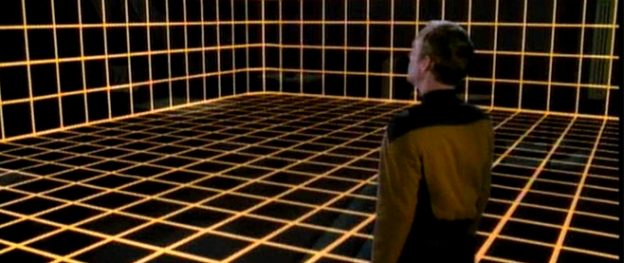
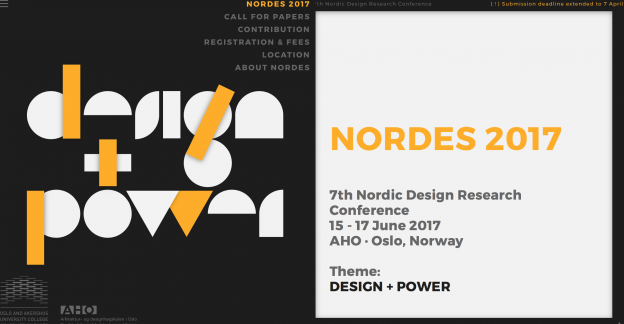
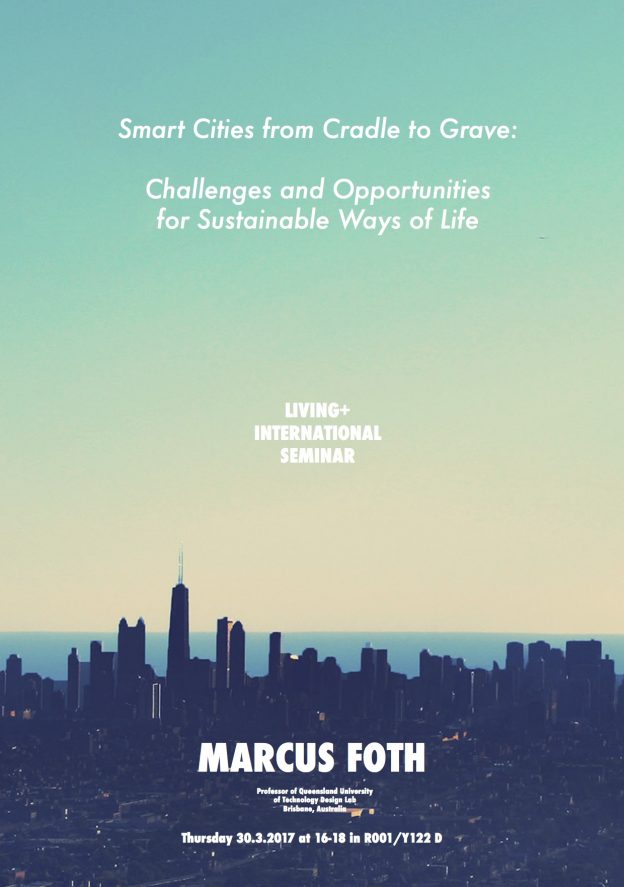

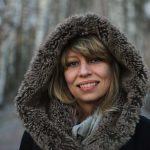
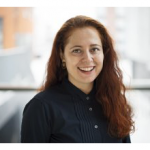 Sanna Marttila is a doctoral candidate in Aalto University, Media Lab. Her doctoral dissertation explores the role of collaborative design in contributing and sustaining of vibrant cultural commons. As a designer Sanna’s interest includes open and collaborative design and creative re-use of digital cultural heritage.
Sanna Marttila is a doctoral candidate in Aalto University, Media Lab. Her doctoral dissertation explores the role of collaborative design in contributing and sustaining of vibrant cultural commons. As a designer Sanna’s interest includes open and collaborative design and creative re-use of digital cultural heritage.